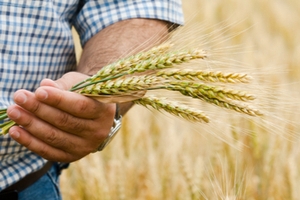Agriculture and Farmers

New Hampshire is home to more than 4,000 farms covering 470,000 acres. The state estimates the agricultural industry supports more than 20,000 jobs with an economic value of approximately $850 million. And while the number of farms in the United States has dipped in recent years, there’s been a resurgence in New Hampshire.
However, it’s still difficult to make farms profitable. According to the National Agricultural Statistics Service, fewer than 1,500 farms surpass $10,000 in annual revenue.
There is debate over what the state can do to help farms survive and flourish without unduly burdening neighbors and taxpayers.
Farmland preservation
Farmland preservation generally takes the form of paying farmers to agree to restrictions on the development of their land in the future, for example by making the land a conservation easement. This ensures that the farmland continues to be used for farming or conservation purposes even if it is sold.
New Hampshire acts to preserve farmland through several different offices and initiatives:
- The state Office of Strategic Initiatives oversees agriculture, farmland, and open space preservation.
- The New Hampshire Land and Community Heritage Investment Program (LCHIP) is an independent state authority that makes matching grants to communities and non-profits to conserve and preserve important natural, cultural, and historic resources, including farmland.
- The Legislature formally established the Commission to Develop a Land Conservation Plan in 2015. This commission, made up of community leaders, is responsible for developing a multi-year land conservation plan. According to a report filed with the commission, about 4% of the state’s land area is actively farmed. Of that 4%, 13% is protected.
- State law also grants communities the power to establish local agriculture commissions to promote and enhance agriculture, agricultural resources, and related economic opportunities. While an agricultural commission has no regulatory or enforcement authority, it can assist a local planning board in the review of relevant matters.
Additionally, the federal Department of Agriculture’s Natural Resources Conservation Service has several programs that offer financial and technical assistance to owners of farm or forestland.
Agritourism
The issue of agritourism gained prominence in 2015 when a farmer in Henniker challenged a town ruling that banned weddings on his farm. The NH Supreme Court ruling backed the town and challenged the Legislature to set definitions for how agricultural land could be used. The Legislature passed a bill (SB 345) in 2016 that redefined agritourism.
This law defined agritourism as any activity carried out on a farm that allows members of the public, for recreational, entertainment, or educational purposes, to view, enjoy, or participate in activities related to farm life. Activities that can be considered agritourism include pick-your-own fruits, Christmas tree harvesting, hay/sleigh rides, corn mazes, and wine tastings.
Cities and towns are prohibited from adopting stricter ordinances that conflict with this law.
Subsidies
From 1995-2021, New Hampshire farmers received nearly $88 million in USDA subsidies — 50th among all U.S. states. According to the USDA, 93% of farms in New Hampshire did not collect subsidies.
At the state level, the Legislature passed a $2 million bailout in 2017 to assist New Hampshire’s 120 dairy farmers impacted by the 2016 summer drought and falling milk prices. New Hampshire’s dairy industry contributes an estimated $225 million to the state economy.
"NH should take more action to protect farmers and farmland."
- Farms are not only a food source; they also provide economic, environmental, and socio-cultural benefits.
- Protecting agritourism is important because it is one of New Hampshire's fastest growing sectors. The number of agritourism farms has increased dramatically since the early 2000s.
- Subsidies provide economic stability to farmers. As New Hampshire witnessed in 2016 with its dairy farmers, the industry can be volatile as it is dependent on uncontrollable forces such as climate. Subsidies help mitigate the damage.
- The preservation of farmland in New Hampshire is of both national and local importance. It helps keep the U.S. less dependent on foreign food sources, thus increasing our national security. A thriving local agricultural industry not only delivers the freshest and healthiest foods to consumers, but supports thousands of jobs.
"NH should not take more action to protect farmers and farmland."
- Taxpayer dollars should not be spent on preserving farmland, as this unfairly subsidizes some farmers — and therefore their agritourism businesses — over their competitors at taxpayers’ expense.
- Broad definitions of agritourism allow farmers to use land zoned agricultural, and which therefore pays a lower tax rate, for commercial activities that are only loosely associated with farming. These activities can also have an impact on neighbors, other community members, and other businesses that must compete with these subsidized farms. Empowering municipalities to set rules and regulations for what extra business farms can engage in gives local residents more say.
- New Hampshire should allow the free market to regulate which farms are profitable and which end up sinking. This will ensure that the most efficient agricultural businesses succeed.
- If farmers can't make their land profitable, that land should be turned to other use, whether for residential development, commercial production, or alternative forms of conservation that make the land a resource for all community members.
This page was last edited on 2025-10-08











Comments
Login or register to post comments